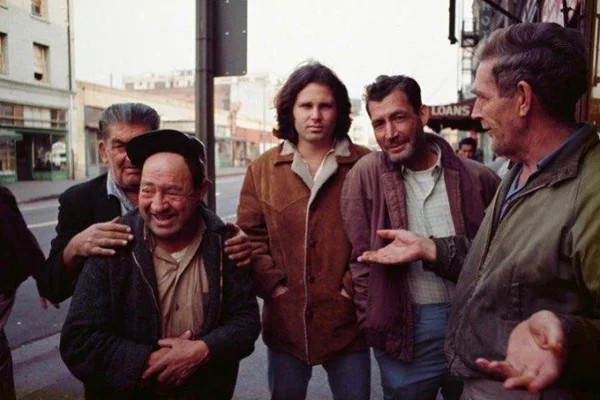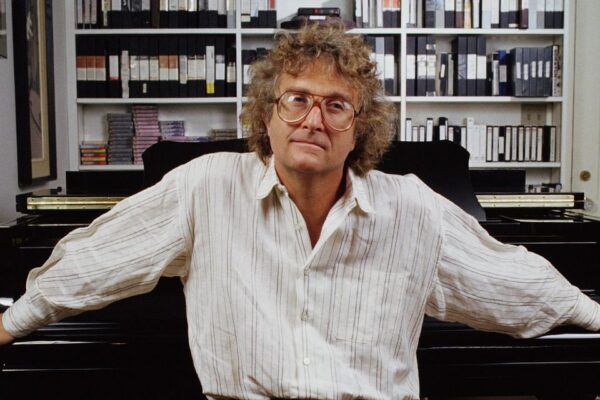It’s hard to believe that Pete Rose, baseball’s all-time hits leader, the man who turned more singles into doubles than most of us turn coffee into energy, has passed away at the age of 83 in Las Vegas.
Pete wasn’t just a good friend of mine; he was also a good friend of my family’s, a fixture in our lives for years, and someone who turned even Little League into a serious affair. No, scratch that—especially Little League.

Now, if you think Pete Rose reserved his intensity for the big leagues, you’d be dead wrong. I learned that in 1997 when I was volunteered—unwittingly, mind you—to coach my oldest son Trey’s Little League team in Beverly Hills.
It was a sunny Saturday afternoon, the kind of day when the smell of fresh-cut grass and the sight of a perfectly chalked diamond fills you with optimism, until, of course, you meet the guy in the stands who is about to alter the course of your life.
“Hey,” said our team’s manager, pulling me out of my blissful reverie. “We need another coach. You in?”
I was flattered. Who wouldn’t want to be on the field teaching America’s pastime to a bunch of eager 11 and 12-year-olds? But then the manager dropped the bomb.
“One condition,” he said, lowering his voice like he was about to tell me the government had secret alien files. “You’ll be the one dealing with that father sitting over there.”
I looked toward the bleachers and saw a figure. At first, I couldn’t make out who it was. But halfway there, I realized. My heart skipped a beat. It was Pete Rose. The Pete Rose. The all-time hits king, the man who made Charlie Hustle a household name, was sitting there, looking like he was ready to spring from the stands and dive headfirst into second base if the opportunity arose.
Now, coaching Little League is a daunting task in the best of circumstances, but coaching a team with Pete Rose in the stands? That’s enough to make you wish you’d taken up golf instead.
Pete’s youngest son, Tyler, had been placed on our team, and our manager and his fellow coach were on the verge of existential crisis at the prospect of coaching the son of the greatest hitter in baseball history. After all, how do you explain batting stances or hitting strategy to a kid who’s been attending the Bucky Dent Baseball School since he could walk? Spoiler alert: you don’t.
But here’s the thing about Pete—he rarely, if ever, got involved. Oh sure, he could strike fear into any adult who knew the barest thing about baseball, but he didn’t need to coach Tyler. Tyler was born with more baseball IQ than the rest of us had learned from watching the pros over a lifetime. In fact, I’m pretty sure Tyler could’ve managed the team better than I could.
Pete did, however, take care of the big stuff—getting us Easton and other major sponsors for the youth travel team we organized after Little League. Because, as you might imagine, Little League wasn’t enough for Pete Rose. We had to go bigger—travel ball, national tournaments in Cooperstown, the works. And that’s where I really got to see the kind of impact Pete had, not just on the field, but in life. He cared deeply about those kids, even if he didn’t take the reins himself.
But the real gem of those years wasn’t the baseball—it was the stories. My wife, Renee, struck gold, sitting next to Pete game after game, season after season. While the rest of us were running around like chickens with our heads cut off, trying to figure out who was up next or why Little Jimmy couldn’t keep his glove out of the dirt, Pete was telling Renee stories about everything. Not just his own career, though there were plenty of those, but the game itself. Pete had an encyclopedic knowledge of baseball’s history. It wasn’t just about hits and runs for him; it was about the soul of the sport, the people who made it what it was.
For years, Pete regaled Renee with tales of his time on the diamond, his thoughts on the legends of the game, and, of course, his special relationship with the great Mickey Mantle. You see, when I met Pete, I was working on my biography about Mantle—Mickey Mantle: America’s Prodigal Son—and Pete was generous in sharing his insights. He had a particular reverence for Mantle, but even more so for Billy Martin. According to Pete, Martin was a baseball genius long before he became a manager, a man who could see things on the field that others couldn’t. I sometimes wonder if Pete saw a bit of himself in Martin—both men passionate, larger-than-life figures who lived and breathed baseball in ways the rest of us could only dream about.
And then, of course, there was Ryan—my youngest son—who at six years old was like Pete’s unofficial mascot. Ryan would sit beside Pete during games, pulling out baseball after baseball for Pete to sign. These were our team’s game balls, practice balls, you name it. Ryan somehow got his hands on them, and Pete, being Pete, would dutifully sign each one, sending them into the ether like home runs into the bleachers. To this day, I’m not entirely sure where those baseballs went, but I like to think there’s a small mountain of them out there somewhere, all bearing Pete’s autograph.
But Pete had a soft spot for my older son, Trey, too. Trey, a lefty hitter, had a swing after Pete’s own heart. Under Pete’s watchful eye, Trey developed into a strong offensive player, even earning offensive player of the year honors as both a junior and senior in high school. I think Pete saw a bit of himself in Trey, and watching Trey step into the batter’s box with that smooth, left-handed swing must have stirred memories of his own playing days.
It’s funny, though, how serious Pete was about the game—even Little League. There was no such thing as “just a game” when it came to baseball. He took every at-bat, every pitch, every throw with the same intensity he had shown when he broke Ty Cobb’s hits record. But for all that seriousness, he was never overbearing, never the overzealous Little League dad you dreaded seeing at practice. He was respectful, encouraging, and always willing to lend a helping hand. He knew what he was talking about—God knows he did—but he never felt the need to remind anyone of it.
And now, Pete’s gone. It’s hard to imagine a world without him, without his fire, his intensity, his love for the game. But as I think back on those days—coaching Tyler, seeing Trey absorb the occasional advice given to him by Pete, watching Ryan scamper around with autographed baseballs, hearing Pete’s stories—I realize that Pete’s legacy isn’t just in his 4,256 hits or his records or even the controversies that dogged him. It’s in the way he touched people, the way he lived and breathed baseball, and the way he made it clear that no matter the level—Little League or Major League—every game mattered.
In a way, Pete’s life was a lot like baseball itself—full of highs and lows, triumphs and setbacks. But at the heart of it all was an unbreakable love for the game. That’s the Pete I knew. The Pete who was always there, sitting in the stands, ready to offer advice or just a signed ball to a kid who didn’t know he was sitting next to a legend.
Today, baseball lost one of its icons, and I lost a friend. But for everyone who had the chance to know Pete, whether through the TV screen or in person, he’ll always be remembered as the man who played every game like it was his last, and who loved the game—and his kids—more than anything else in the world.
TONY CASTRO, the former award-winning Los Angeles columnist and author, is a writer-at-large and the national political writer for LAMonthly. org. He is the author of “Mantle: The Best There Ever Was”. He can be reached at tony@tonycastro.com.
Photo: Pete (center) with Tony Castro and Trey LaSalle-Castro at the Pete Rose Winter Baseball Camp, Cathedral City, CA , 1997.





